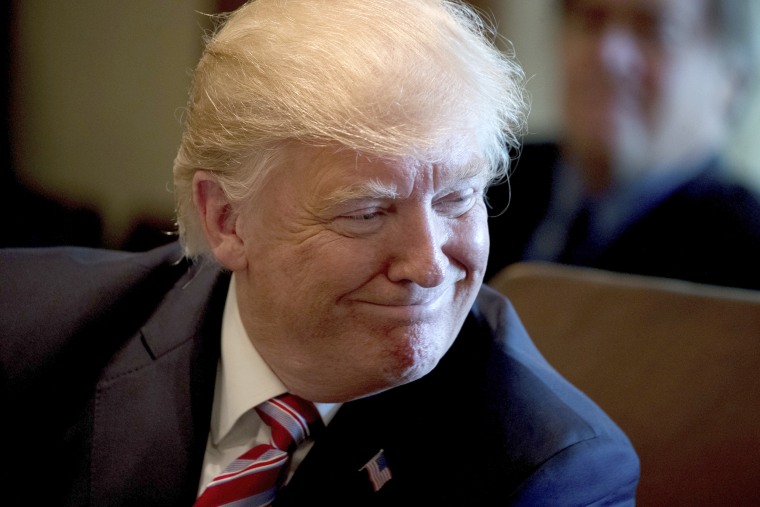America overspent by $30 billion in May, bringing this year's budget deficit to a grand total of $433 billion. But does it matter?
"In the short term, the answer is no," said Michael Tanner, a senior research fellow at the Cato Institute, a libertarian think tank based in Washington, D.C. He said different programs and payments may kick in or out at different times during the year.
"It's sometimes hard to match revenue fluctuations with spending fluctuations and pick out any one and say that's significant," Tanner told NBC News.
Federal budget watchers tend to ignore the month-to-month ups and downs. What matters more is the long-term view. And the Congressional Budget Office has projected that the deficit will continue to rise over the next 10 years.
Then-candidate Donald Trump said on the campaign trail that he would eliminate America's $19 trillion debt "over a period of eight years," a message that may have resonated with the voters who ushered him into the highest office.
Yet, according to surveys by the Pew Research Center, even though a majority of Americans say that addressing the budget deficit is a top priority for 2017, when asked which government initiatives they would cut, most wouldn't decrease federal spending on any programs.
Just like a maxed out credit card, the kind of debt the government takes on matters more than the actual number.
Putting a bunch of saws and lathes on your Amex so you can start a handyman business? That's "good debt" because you're investing in increasing your earnings potential.
Putting an Xbox and big-screen TV on your card just so you can play Call of Duty and then taking months to pay it down? You might be better off saving up and paying in cash. (Or picking up Frisbee golf.)
Related: Trump's Unusual Plan to Lower the National Debt
But, unlike a household, the government can print its own money and sell bonds, and its borrowing can flow back into the economy.
"Some deficits are temporary and may be incurred in a way that actually stimulates the economy over the longer term, such as a stimulus bill," said NBC News Business Correspondent Ali Velshi.
While the deficit may not matter much now, the bill may come due as the economy heats up and the interest on payments, the fastest rising portion of the national debt, increases even faster.
"Deficits, and debt in general, matter much less in times of low interest than times of high interest. We are currently in the former, but moving toward the latter," said Velshi.
No one is certain when the debt stops being a number and when it would start scaring away countries and investors enough that they'll stop buying our debt, as we are still the world's most advanced economy, said Alan Viard, resident scholar at the American Enterprise Institute, a conservative research group based in Washington.
But the more we kick the can down the road, the harder it becomes to deal with.
"The impact of debt accumulation is not like a tornado that tears down your house but more like termites," said Viard.

